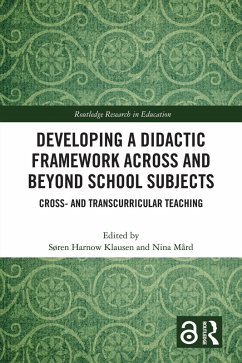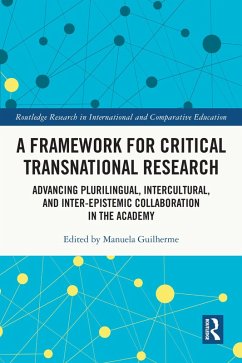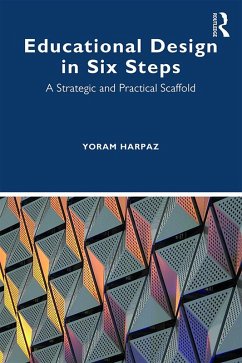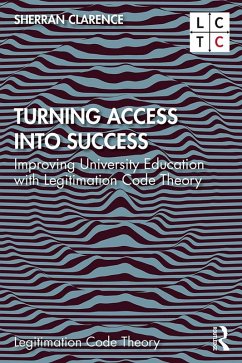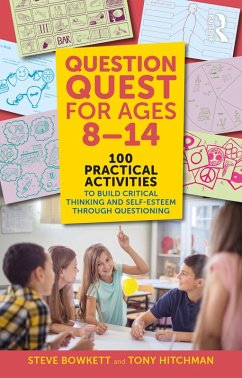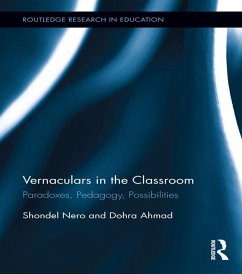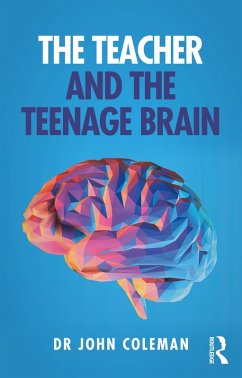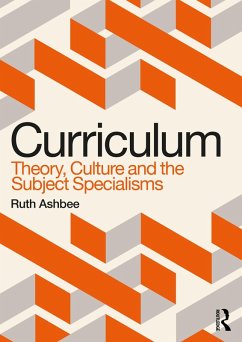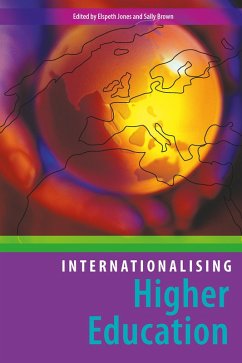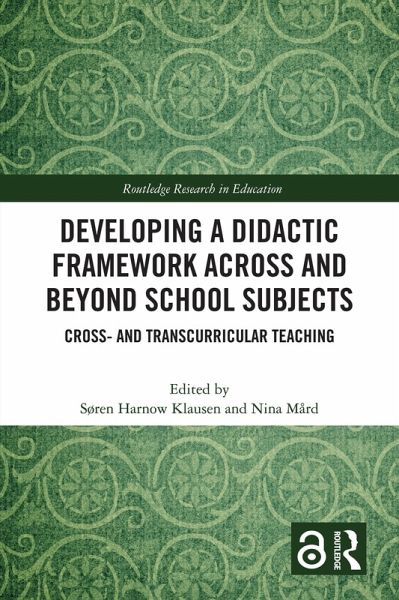
Developing a Didactic Framework Across and Beyond School Subjects (eBook, PDF)
Cross- and Transcurricular Teaching
Redaktion: Klausen, Søren Harnow; Mård, Nina

PAYBACK Punkte
0 °P sammeln!
Centered around a contemporary conception of Bildung, this book effectively demonstrates how the aims of cross- and transcurricular teaching can be reconciled, resulting in a didactic framework for teaching and learning in secondary schools that can be applied internationally.Chapters present a nuanced and unified approach to fusing theory and practice by offering accounts of some of the most promising teaching methods from leading scholars in the field of curriculum research. These methods include dialogic teaching or movement integration, transversal competences like digital or entrepreneuri...
Centered around a contemporary conception of Bildung, this book effectively demonstrates how the aims of cross- and transcurricular teaching can be reconciled, resulting in a didactic framework for teaching and learning in secondary schools that can be applied internationally.
Chapters present a nuanced and unified approach to fusing theory and practice by offering accounts of some of the most promising teaching methods from leading scholars in the field of curriculum research. These methods include dialogic teaching or movement integration, transversal competences like digital or entrepreneurial thinking, and topics that call for crosscurricular approaches, like sustainability or citizenship. Addressing diverse worries and criticisms of crosscurricular teaching, the book includes international viewpoints and trends such as sustainability, citizenship, and student motivation to present a comprehensive and systematic scholarly treatment of crosscurricular didactics within the classroom. It further addresses important challenges that have been widely ignored, like how to evaluate crosscurricular work.
Ultimately, this volume makes a highly novel contribution to the field of crosscurricular didactics, and will be of interest to researchers, scholars, and academics in the fields of secondary education teaching and learning, educational science, and curriculum design. Those interested more broadly in the theory of education will also find the volume of use.
The Open Access version of this book, available at www.taylorfrancis.com, has been made available under a Creative Commons Attribution- Non Commercial-No Derivatives (CC-BY-NC-ND) 4.0 license.
Chapters present a nuanced and unified approach to fusing theory and practice by offering accounts of some of the most promising teaching methods from leading scholars in the field of curriculum research. These methods include dialogic teaching or movement integration, transversal competences like digital or entrepreneurial thinking, and topics that call for crosscurricular approaches, like sustainability or citizenship. Addressing diverse worries and criticisms of crosscurricular teaching, the book includes international viewpoints and trends such as sustainability, citizenship, and student motivation to present a comprehensive and systematic scholarly treatment of crosscurricular didactics within the classroom. It further addresses important challenges that have been widely ignored, like how to evaluate crosscurricular work.
Ultimately, this volume makes a highly novel contribution to the field of crosscurricular didactics, and will be of interest to researchers, scholars, and academics in the fields of secondary education teaching and learning, educational science, and curriculum design. Those interested more broadly in the theory of education will also find the volume of use.
The Open Access version of this book, available at www.taylorfrancis.com, has been made available under a Creative Commons Attribution- Non Commercial-No Derivatives (CC-BY-NC-ND) 4.0 license.
Dieser Download kann aus rechtlichen Gründen nur mit Rechnungsadresse in A, B, BG, CY, CZ, D, DK, EW, E, FIN, F, GR, HR, H, IRL, I, LT, L, LR, M, NL, PL, P, R, S, SLO, SK ausgeliefert werden.




